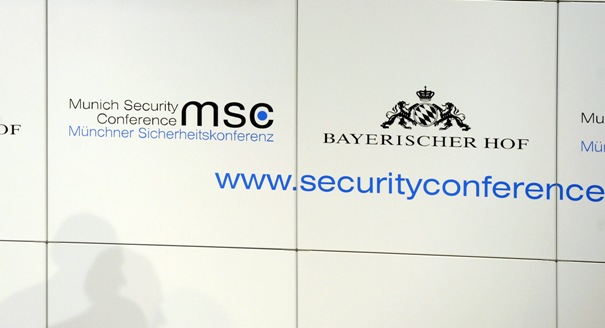The headline conjures up certain quite sad associations, doesn’t it? I think the annual Munich Security Conference, which plays host to the world foreign policy and defense elite, should consider a venue change! Otherwise, as the global actors fail to deal with the world’s many problems, the Munich summits will constantly conjure up associations with the Munich Agreement of 1938.
Frankly, I am not interested in security problems in isolation from other issues. Rather, a different aspect of the Munich Conference is of interest to me. I see it as an indicator of fast-changing global trends. For instance, the 2013 Munich Conference reflected totally different sentiments and balance of powers. It was a time of positive feelings, since the West started seeing some signs of recovery from its protracted economic uncertainty. But most importantly, it was a time of euphoria from the “shale revolution,” which promised to free liberal democracies from their energy dependence on Russia and, more importantly, the Middle East. The United States itself was becoming an energy exporter! It seemed that geopolitical changes favored the major Western players, and the United States acquired a new role on the world stage.
Clearly, Moscow could not enjoy these changes—it became a disgruntled participant that no one cared about. During the 2013 Munich Conference, Sergey Lavrov again brought up the idea of “a common and indivisible Euro-Atlantic and Eurasian security community stretching from Vancouver to Vladivostok.” But, apparently, even he did not believe that the idea can come to fruition.
The situation could not be more different today. Last year became the year of Vladimir Putin’s triumph, which just confirms how difficult it is to forecast the current trends. Putin’s Syrian proposals and his successfully enforced courtship with Ukraine have made him triumphant, although this triumph resulted from the paralysis of the West and its unwillingness to pursue an active foreign policy. Putin’s triumph may turn into defeat in no time, but at the moment, Moscow is free to savor the sweetness of its ascension.
I am not very concerned with the Russian rhetoric at the forthcoming summit—it can be predicted based on President Putin’s numerous past pronouncements. I am curious how Europe and the United States will act. What face will the Western players put on while listening to Sergey Lavrov, who will represent Russia at the conference? Meanwhile, two main issues on the Munich Conference agenda are Syria and Ukraine. No one knows how to get out of the Syrian trap. The issue of Ukraine will be of utmost importance. No one knows how to resolve the crisis in Ukraine either. But Europe and the West simply cannot afford to ignore the Ukrainian drama which is climaxing.
In Ukraine, the draconian anti-protest laws passed on January 16 and signed by President Viktor Yanukovych could be considered as constitutional coup. The adoption of this legislative package means that Yanukovych has finally decided to crack down on the mass protest and guarantee his own reelection in the next presidential elections. The developments during January 19-20 prove that the Ukrainians will not quietly accept this infringement on their rights. Civil confrontation has put Ukraine on the verge of the civil war. It is still unclear at this stage how the confrontation will unfold. In any case, Munich Conference will have to deal with the Ukrainian question.
It has already been proposed that the United States, the Great Britain, and Russia mediate the situation in Ukraine as the states that promised to guarantee Ukraine’s security as part of the agreement to remove nuclear weapons from its territory. But how Russia, which has already been openly involved in the Ukrainian crisis through the actions of its president, be qualified to serve as a mediator?
In other words, the Munich event that was supposed to be devoted to security problems takes on a larger significance—it is supposed to raise the question of civilizational split. After all, the Ukrainian crisis is an outcome of the domestic confrontation with the international involvement over the future trajectory of the country’s development. The security issues that arise in this context are merely derivatives of the first question.
It appears that the West is not ready to frame the question in such terms. In any event, Germany through its officials has already cautioned its former Foreign Minister Guido Westerwelle and Catherine Ashton against going to the Maidan and meeting with the opposition. It means that Germany prefers the status quo. But is it possible with Yanukovych in charge? I wonder what position the United States will take. The U.S. administration hinted at possible visa sanctions against the Ukrainian authorities in case they resort to violence. On January 19th the White House issued a statement where it called the Ukrainian government “to repeal of the anti-democratic legislation signed into law in recent days, withdraw the riot police from downtown Kyiv, and begin a dialogue with the political opposition.” But how convincing will the admonitions from Washington be? That is what we will soon find out. In any case, one has to understand that Yanukovych will use the dialogue to play for time. He will not be ready to bow out graciously…





